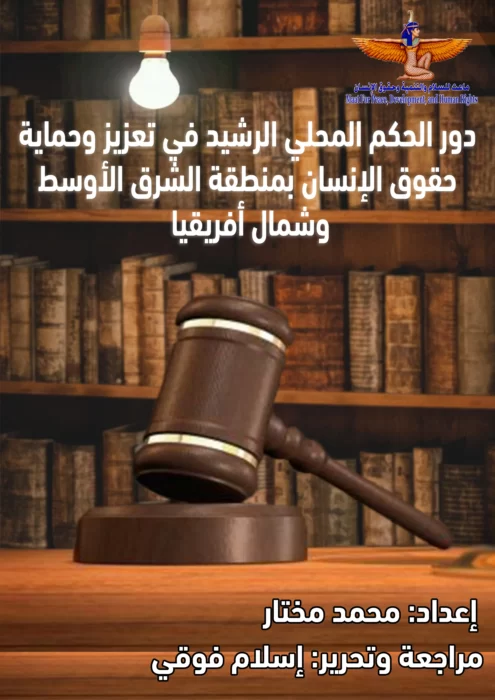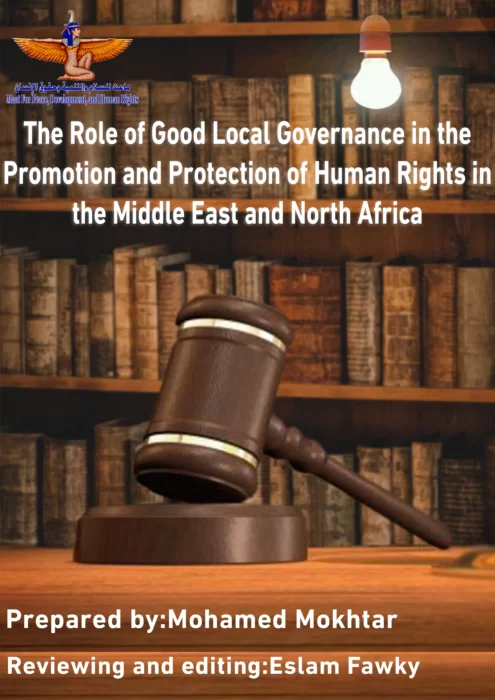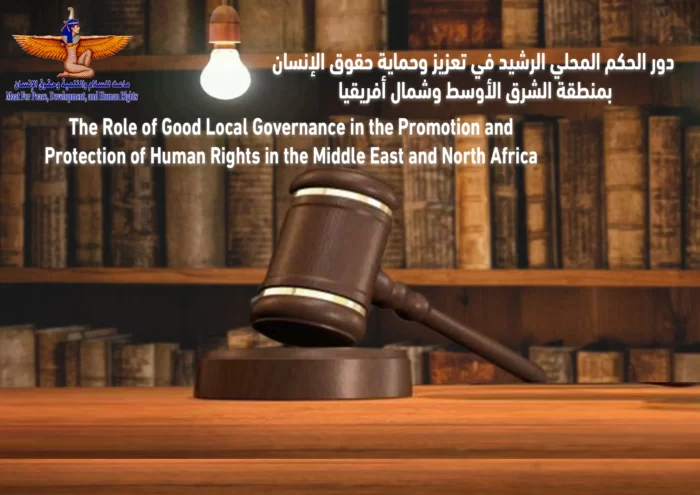Okeil: Local administrations are the closest link to citizens and play a direct role in promoting their human rights
Fawki: Work should be done to apply the standards of good local governance and support administrative decentralization
Maat for Peace, Development and Human Rights issued a new study entitled "Role of Good Local Governance in the Promotion and Protection of Human Rights in the Middle East and North Africa", in conjunction with Maat's participation in the activities of the HRC’s 52nd session in Geneva. Maat believes that good governance plays a vital role in supporting and consolidating human rights at the local level, and stresses the importance of implementing the principles of good governance as an effective means for the realization of human rights.
The study explains the role played by local administrations in the countries of the Middle East and North Africa towards promoting human rights, in addition to analyzing the challenges facing local governments in these countries that impede the process of advancing all human rights without discrimination, and concludes with a series of steps that should be taken to advance human rights.
Ayman okeil, a human rights expert and President of Maat for Peace, Development and Human Rights, stresses that local administrations are the closest link to citizens, as they interact directly with them and meet their daily needs, so their role should be strengthened in order to empower citizens to participate effectively in the decision-making processes that affect their lives. Local administrations deal with human rights-related issues on a daily basis, Okeil explained. In the course of performing its functions, the local authority may make decisions on housing, health, education, environment, etc., which are directly linked to the realization of human rights, and thus may enhance or weaken the ability of citizens to enjoy their human rights.
For his part, Islam Fawki, Director of the Democracy Support Unit at Maat, pointed out that there are a set of challenges undermining the work of local administrations and impeding their ability to fulfill their obligations towards the promotion and protection of human rights. These challenges are crowned by deep centralization, unproportioned power distribution between the local and central government, lack of financial independence and lack of information about the real conditions of citizens. Fawki believes that there is a need to apply the criteria for good governance in order to improve the human rights conditions, especially with regard to the promotion of the process of political participation, the enhancement of the rule of law, transparency, and the consensus of opinions at the level of the local community. Besides, administrative decentralization should be supported and local departments should be empowered to meet to the needs of citizens.
![]()
 |
 |
shortlink: https://maatpeace.org/en/?p=37930












